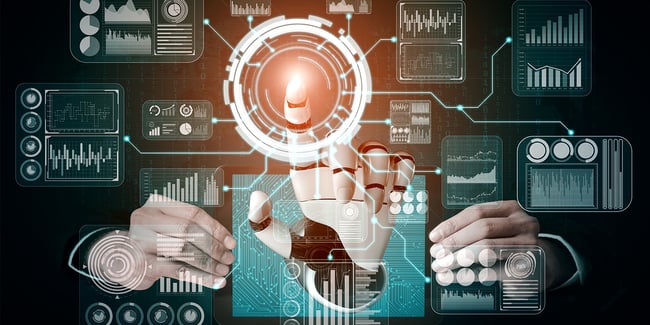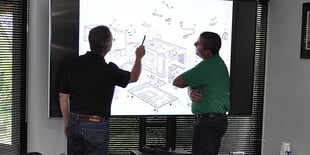The Future Impact of AI in Manufacturing

Written by Hans Dittmar
Manufacturing is at the cusp of a transformative era. As the integration of AI continues, its implications will permeate deeper into the production realm, leading to profound changes in how we conceptualize, produce, and distribute goods.While some changes will take quite some time, others will be more immediate.
Let's explore some of these impacts:
1. Smart Factories:
- Adaptive Production Lines: Traditional assembly lines can be rigid. AI will enable lines that can adapt in real-time to changes in product specifications or demands, seamlessly switching between products without requiring extensive retooling.
- Energy Optimization: AI-driven energy management systems can predict and adjust energy consumption patterns to minimize costs and reduce the carbon footprint.
2. Enhanced Human-Machine Collaboration:
- Cobots (Collaborative Robots): AI-powered robots designed to work alongside humans will become more prevalent. These 'cobots' will learn from their human counterparts, ensuring safe and efficient collaboration.
- AR and VR Integration: AI-driven Augmented Reality (AR) and Virtual Reality (VR) tools will assist workers in assembly, maintenance, and training tasks, offering real-time insights and guided assistance.
3. Continuous Learning and Improvement:
- Feedback Loops: As products roll off the assembly line, AI systems will continuously analyze their performance in real-world conditions, automatically suggesting design or process improvements for subsequent batches.
- Skill Enhancement: AI-driven training modules can adapt to the learning pace of individual employees, ensuring that they always have the latest skills and knowledge.
4. Risk Management:
- Safety Monitoring: AI-driven camera systems and sensors can monitor factory environments, identifying potential safety hazards and ensuring compliance with safety standards.
- Predictive Analysis: By analyzing historical data, AI can predict potential financial, operational, or market risks, enabling manufacturers to make more informed decisions.
5. Customization at Scale:
- Personalized Manufacturing: Consumers increasingly demand personalized products. AI will facilitate mass customization, allowing for products tailored to individual preferences without sacrificing the efficiency of mass production. This has been a trend in retail for some time, though mostly through processes that require a more human touch.
- Direct Consumer Engagement: AI can bridge the gap between manufacturers and end-users, allowing real-time feedback and customization requests to shape production directly.
6. Supply Chain Revolution:
- Transparent and Traceable Supply Chains: AI-driven blockchain systems can offer real-time tracking of every component, ensuring transparency, accountability, and verification of ethical sourcing.
- Just-in-Time Manufacturing: AI's predictive capabilities will improve the just-in-time model, drastically reducing warehouse storage needs and ensuring materials arrive exactly when needed.
7. New Business Models:
- Service-as-a-Product: As products become smarter (thanks to embedded AI), manufacturers might shift from selling products to leasing them, offering continuous updates, optimizations, and services.
- Decentralized Manufacturing: AI could drive a shift from large centralized factories to smaller, localized production units, reducing transportation costs and allowing rapid response to local market changes.
While this list covers many areas where AI will affect manufacturing, there are certainly more areas every day where AI is playing a role. It is important for you to understand where the benefits of AI can be leveraged in your own products and processes.
The future impact of AI on manufacturing is not just about automation and efficiency—it's about reimagining the entire process and business model. Manufacturers who embrace this change will find themselves at the forefront of a new industrial era, characterized by agility, innovation, and unparalleled customer satisfaction.




